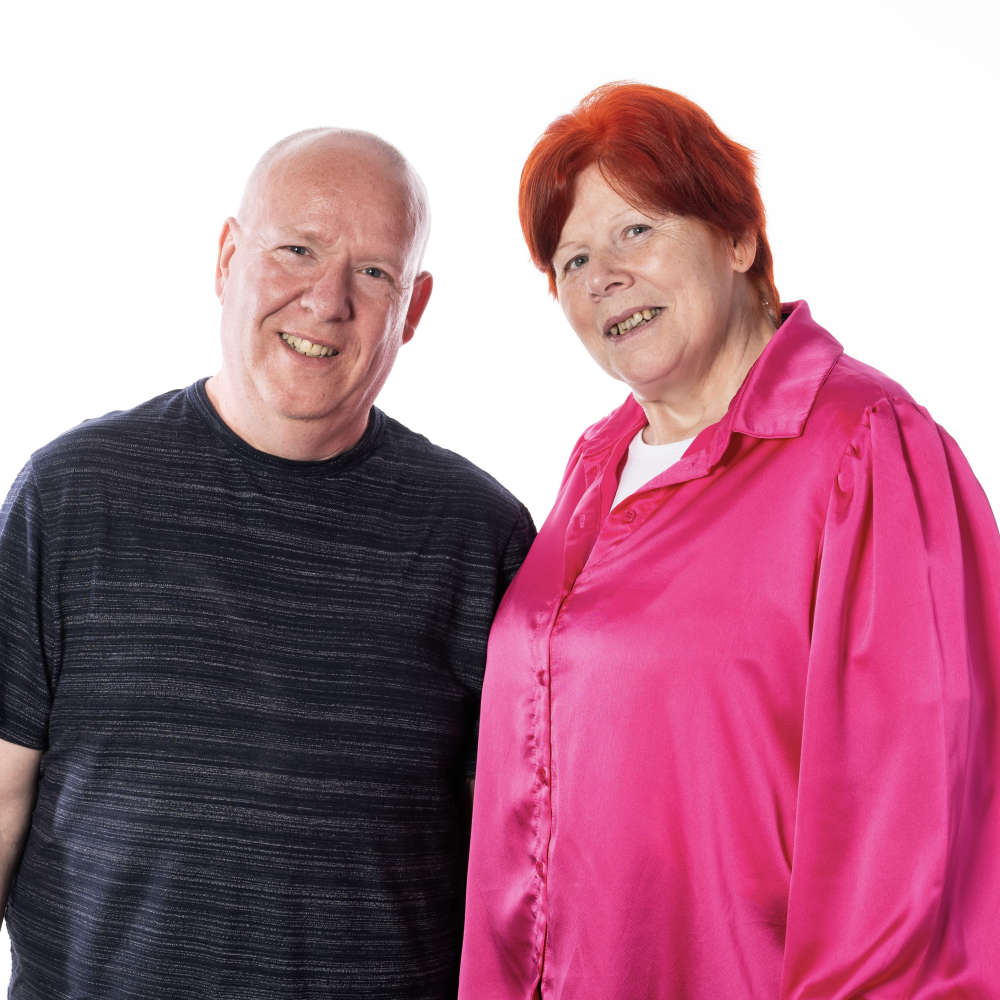Rhianan Rudd, who took her own life at the age of 16, was the youngest girl in the UK to be charged with terrorist offences.
The inquest into her death, which concluded today, revealed shocking details about her radicalisation by two American white supremacists, one of whom was her mother's boyfriend, who the coroner said "played a material role in her radicalisation".
Rhianan gouged a swastika into her forehead, downloaded a bomb-making manual and told her mother she planned to blow up a synagogue.
Investigated by anti-terrorism police and MI5, charges against her were later dropped, but five month later on 19 May 2022, she was found dead in her shower in a children's home in Nottinghamshire. Hours earlier she had posted on Instagram: "I'm delving into madness."
The evidence heard in Chesterfield Coroner's Court from police, social services and even an MI5 operative, raised questions over the state's part in her death - and whether, despite her obvious radicalisation, this vulnerable, autistic girl should have been treated with more care by the authorities.
Judge Alexia Durran said: "I'm not satisfied, on the balance of probabilities, Rhianan intended to take her own life. Rhianan's death... was the result of a self-inflicted act but it is not possible to ascertain her intention.
"Rhianan was known, to family and professionals, to be vulnerable, to have autistic traits and have a history of self-harm."
The coroner added: "I find she was highly affected by her arrest and was concerned about being sent to prison."
It was not known what Rhianan was told by her legal team when the charges were dropped but this may have had a "psychological impact" on her, the coroner said.
In an interview released at the verdict, Rhianan's mother Emily Carter said her daughter "should never have been charged", that she was failed by those investigating her, including MI5 and counter terrorism police, as well as being let down by mental health services and those caring for her at the home.
This was the most complex of cases, set at a time when our security services are seeing a growing number of children being arrested and charged for terrorist offences, while parents often seem oblivious to the radicalising material they are consuming online in their bedrooms.
Ms Durham's ruling reflected this complexity, finding that while there were some failings the actions of the police and MI5 were "reasonable and proportionate".
The coroner concluded today that she was satisfied that missed opportunities in her case were "not systemic".
Judge Alexia Durran said: "In the circumstances I do not consider I should make a prevention of future deaths report."
At the same she was unequivocal about the "significant" role played by two extremists in radicalising her.
It was her mother's former boyfriend, an American she'd befriended though a US pen-pal prison scheme, who first introduced Rhianan to far-right ideology.
Dax Mallaburn had been part of a white supremacist prison gang in the US and subsequently came to the UK to live with Rhianan's mother in September 2017, a year after she'd been to visit him in the US.
In the autumn of 2019, Rhianan alleged that he had touched her inappropriately but later withdrew the allegation and, after a social services assessment, Mr Mallaburn returned to the family home.
Ms Carter says: "In hindsight, he was a bad person but I never saw him talking Nazi stuff with her."
Before Rhianan was arrested, Mr Mallaburn's relationship with her mother had broken down and he returned to the US and then Mexico. However, during COVID, Rhianan appeared to contact another far-right extremist, Christopher Cook, and began an online relationship with him.
Cook, who was roughly 18 and living in Ohio, shared far-right texts with Rhianan along with a bomb-making manual, and during this time she became fixated with Adolf Hitler.
Cook's lawyer, Peter Scranton, says he too was radicalised online, and he came up with a plan to blow up power stations in the US, for which he was eventually arrested in August 2020, and in February 2022 he pleaded guilty to terrorism offences.
Cook, who was a misfit at school, suffering from "severe depression" according to his lawyer and was "essentially lashing out" as he tried to form a group to carry out his plan.
Mr Scranton told Sky News, "It was white nationalism, and they had this idea, and I don't know why anyone would feel this way or how they thought it would work, that if they tore down the government and started over they could create a new United States of America that could look like the image that they would want - a white nationalist image."
Read more from Sky News:
Plastic surgeon tried to murder former boss
Downtown LA a scene of 'pandemonium'
Day Of The Jackal author dead
Mr Scranton says Cook told him he didn't radicalise Rhianan, and it was the former boyfriend, Dax Mallaburn, who'd initially got her into neo-Nazi ideology. However, the coroner found Cook was "a significant radicaliser of Rhianan" at a time when she was "isolated and unsupervised".
Ms Carter says Rhianan was interested in German history because she was doing it at school and Cook was able to "pull her in", to racial hatred and antisemitism. She says she didn't know what was happening, despite having parental controls on Rhianan's devices. She said: "I could hear her talking to people on there and I'd say who are you talking to and she'd say - just someone from school - and in fact I found out it wasn't at all.
"When this person she was talking to disappeared, that's when she sat down on my lap like a baby and cried. She told me this guy Chris had left her, and she was totally in love with him - then she came down and told me she had downloaded a bomb manual and I was like 'Oh my god, what have you been doing'."
Ms Carter decided to contact Prevent - a national program in the UK designed to stop individuals from becoming terrorists or supporting terrorism
She says: "I thought putting her in a deradicalisation programme would be a fairly easy undo 'brain pick', But it wasn't until the police turned up that I thought 'hang on a minute this is a lot deeper than I actually thought it was at first'."
Ms Carter and her lawyers have argued that the police were heavy-handed, that there should have been a psychological assessment before she was even questioned over terrorism offences.
"There were 19 police officers to arrest a 5ft 1, 14-year-old girl who weighs seven stone. It was over the top," says Ms Carter.
Once Rhianan was charged, the deradicalisation work under Prevent was put on hold. Ms Carter thinks this was a mistake.
She says: "Leaving her with her own thoughts throughout the entire time of going through the police interviews and everything else - the deradicalisation would have changed the way she was seeing things - I believe she would have been able to handle it all so much better."
The coroner described the police arrest and interview as "necessary and conducted appropriately" and that, while ceasing the Prevent intervention was an "unfortunate consequence" of the police investigation, it was "an appropriate step".
During police interviews, Rhianan described being coerced and groomed, including sexually, and having sent explicit images of herself to Cook.
Lawyers representing the family say police and MI5 knew she was the victim of child sexual exploitation but failed to refer her to the relevant body - the National Referral Mechanism.
It was only after a social worker made the referral, that she was identified as a child victim and then the charges were dropped, by which time she had been subject to investigation and prosecution for 15 months.
The coroner agreed that there was a "systems failure" due to a lack of training both within the police and the Derbyshire council who both had had "significant information" that she was a potential victim of modern slavery.
However, she also said it "was impossible to know" whether this would have led to the CPS dropping their charges sooner, "nor that if had more than minimal impact on Rhianan's death".
Ms Carter says if she'd been treated differently "she'd be troubled, but I do think she'd still be alive".
Rhianan's family say the security services knew her vulnerabilities and that she had a tendency to self-harm, but they failed to take this into account.
Ms Carter said: "I admit my mistakes and I want the organisations to admit their mistakes. There were failings and they need to admit them."
This ruling however found that the state did not play a role in Rhianan's death under article 2 of the European Convention on Human Rights.
For the most part, her vulnerabilities were known and taken into consideration. It does however show how extremists will exploit children with mental health problems, young people who are struggling with life who may be a danger to society, but also a risk to themselves.
Counter Terrorism Policing said it offered "sincere condolences to Rhianan's family and loved ones for their terrible loss".
Assistant Chief Constable Di Coulson, speaking on behalf of Counter Terrorism Policing in the East Midlands (CTPEM) and Derbyshire Constabulary, said: "This was a complex case involving a very vulnerable young person, who had been subjected to radicalisation.
"Rhianan's tragic death was clearly devastating for her family. It was felt profoundly by the officers directly involved, but also across Counter Terrorism Policing as a whole.
"Rhianan's case was a stark moment for our management of the growing numbers of children and young people in our casework - so often presenting vulnerability as well as risk and threat to the public.
"Since Rhianan's death, we continue to work alongside our partners to evolve the way we approach cases involving children and, where feasible, attempt to rehabilitate and deradicalise, rather than investigate and convict.
"We welcome the findings of the Chief Coroner today, and while we have already made substantial improvements to the way we manage these cases, we will carefully review the findings and make any further changes in order to improve our protection of the public against terrorism."
Anyone feeling emotionally distressed or suicidal can call Samaritans for help on 116 123 or email jo@samaritans.org in the UK. In the US, call the Samaritans branch in your area or 1 (800) 273-TALK

(c) Sky News 2025: Rhianan Rudd: How mother's boyfriend played 'significant' role in radicalis



 The five considerable problems with the chancellor's U-turn on winter fuel payments
The five considerable problems with the chancellor's U-turn on winter fuel payments
 Jobless rate above predicted peak as budget tax hikes kick in
Jobless rate above predicted peak as budget tax hikes kick in
 UK weather: Thunderstorms and 'intense rainfall' possible this week - and temperatures could break heatwave thresholds
UK weather: Thunderstorms and 'intense rainfall' possible this week - and temperatures could break heatwave thresholds
 Paternity pay in UK is one of the lowest in the developed world, MPs say
Paternity pay in UK is one of the lowest in the developed world, MPs say
 Spending review 2025: Cutting agricultural budget could be 'catastrophic' for nature, farmers and charities warn
Spending review 2025: Cutting agricultural budget could be 'catastrophic' for nature, farmers and charities warn
 Heading to Germany or Switzerland? You'll soon be able to take the train
Heading to Germany or Switzerland? You'll soon be able to take the train
 Sizewell C: Govt commits £14.2bn to new nuclear power station
Sizewell C: Govt commits £14.2bn to new nuclear power station
 Jess and Norma: Grandmother who had millions of fans on TikTok dies aged 91
Jess and Norma: Grandmother who had millions of fans on TikTok dies aged 91










